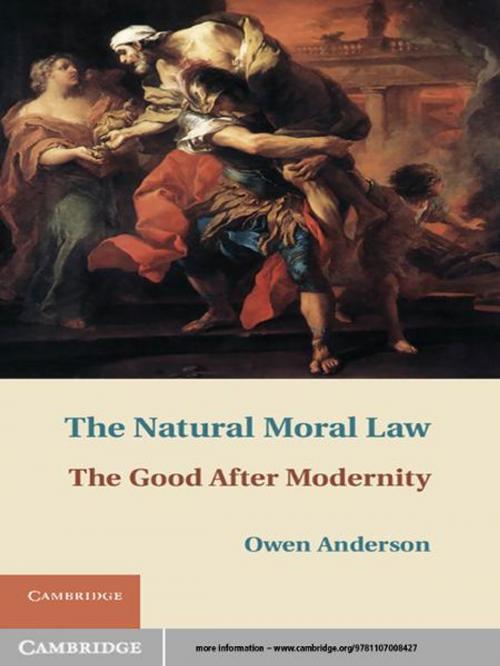The Natural Moral Law
The Good after Modernity
Nonfiction, Reference & Language, Law, Jurisprudence, Social & Cultural Studies, Political Science| Author: | Owen Anderson | ISBN: | 9781139365888 |
| Publisher: | Cambridge University Press | Publication: | April 30, 2012 |
| Imprint: | Cambridge University Press | Language: | English |
| Author: | Owen Anderson |
| ISBN: | 9781139365888 |
| Publisher: | Cambridge University Press |
| Publication: | April 30, 2012 |
| Imprint: | Cambridge University Press |
| Language: | English |
The Natural Moral Law argues that the good can be known and that therefore the moral law, which serves as a basis for human choice, can be understood. Proceeding historically through ancient, modern and postmodern thinkers, Owen Anderson studies beliefs about the good and how it is known, and how such beliefs shape claims about the moral law. The focal challenge is whether the skepticism of postmodern thinkers can be answered in a way that preserves knowledge claims about the good. Considering the failures of modern thinkers to correctly articulate reason and the good and how postmodern thinkers are responding to these failures, Anderson argues that there are identifiable patterns of thinking about what is good, some of which lead to false dichotomies. The book concludes with a consideration of how a moral law might look if the good is correctly identified.
The Natural Moral Law argues that the good can be known and that therefore the moral law, which serves as a basis for human choice, can be understood. Proceeding historically through ancient, modern and postmodern thinkers, Owen Anderson studies beliefs about the good and how it is known, and how such beliefs shape claims about the moral law. The focal challenge is whether the skepticism of postmodern thinkers can be answered in a way that preserves knowledge claims about the good. Considering the failures of modern thinkers to correctly articulate reason and the good and how postmodern thinkers are responding to these failures, Anderson argues that there are identifiable patterns of thinking about what is good, some of which lead to false dichotomies. The book concludes with a consideration of how a moral law might look if the good is correctly identified.















